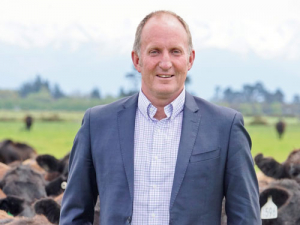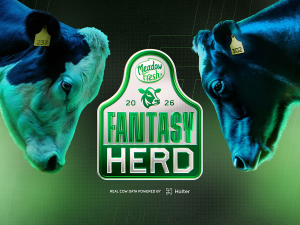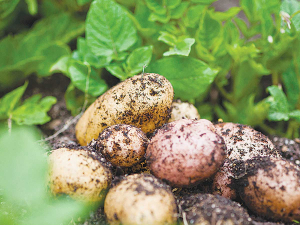Beef + Lamb NZ chair Andrew Morrison told last week’s annual meeting in Timaru that the past 12 months have been “an awfully busy year”.
He said the year’s key markers were the Mycoplasma bovis outbreak and response, Government expectations over water and climate change, Brexit and the release of the of BLNZ’s environment strategy.
“I want to acknowledge what a difficult year this has been for many farmers in this region who have been affected by M. bovis,” Morrison told about 100 people who attended the meeting.
Dealing with M. bovis has been a major priority for BLNZ since July 2017 and will continue to be so, he said.
“To date, well over 1000 farms around the country have been directly affected by M. bovis as a result of being put under surveillance, or movement controls, or worse having their cattle culled. More families and people have been affected by the knock-on effects. In Otago alone, 10 farms are currently facing depopulation on top of those where this has already occurred.”
Morrison says a number of BLNZ staff have been assigned to MPI to provide expertise about biosecurity and beef farming and to help to identify issues and propose solutions to make the biosecurity system better able to handle future challenges – particularly to traceability and operational capability.
He says BLNZ will keep working with DairyNZ on support for all farmers, including the joint compensation assistance team which he claims had to date assisted farmers in completing at least 70% of the claims received by MPI.
Referring to the current 68% / 32% split in government and industry funding of M.bovis compensation, Morrison acknowledged concerns about the split in the dairy/beef contribution.
“I recognize that it will impose a significant financial burden on many dairy farmers,” he explained. “It was uncharted territory for both BLNZ and DairyNZ and we therefore agreed to set up an independent panel to make a recommendation based on the principles of the GIA.
“Both Jim [Dairy NZ chair Jim van der Poel] and I agreed at the outset we would abide with the decision of the panel. Because M. bovis does not impact on trade, the principle considerations for the panel were the impact of the disease on production and the scale of each sector.
Morrison explained that M. bovis has little impact on beef production.
“We agreed to the eradication programme in support of dairy farmers, whose production would be significantly affected over time.
“We are now working with DairyNZ and MPI on how we can strengthen our biosecurity systems for livestock production to prevent further incursions -- looking at traceability, better government systems for sharing data, and strengthening the capability of farmers, industry organisations and MPI’s front-line people.”


















